Search Results For: buterin
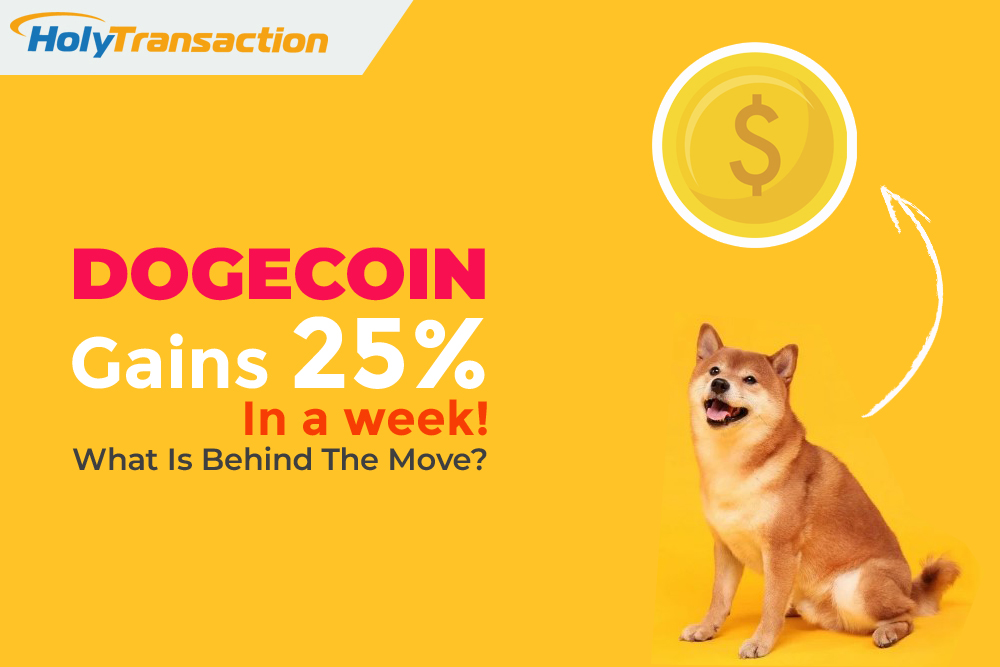
Dogecoin gains 25% in a week! What is behind the move?
Popular cryptocurrency meme token Dogecoin ($DOGE) recorded record 25% gains in the last week as Twitter CEO continued to update his followers on what the future might have in store for the popular social media platform.
As well as the distinct possibility of Dogecoin being used for micropayments on the site, Musk was quick to remind his followers that all being well, lunar satellite DOGE-1 will be going in to orbit in the first part of the new year.
Alongside other lunar payload IM-1/NOVA-C, DOGE-1 is to catch a ride with the SpaceX Falcon 9 which is set to take off from the Kennedy Space Centre, Florida on January 14th 2023.
The Doge moon mission was first announced by Elon Musk in May 2021 but delays related to the IM-1 lunar lander have mean that the project has been pushed back. The renewed interest seems to be behind last week’s surge in the price of Dogecoin.
Improved efficiency
The price of Dogecoin currently stands at $0.094 which with a market cap of $12.5 billion makes the coin the 8th most popular cryptocurrency in the world today. Despite a recent drop of 4.5% over the last 24 hours the price action for Dogecoin over the last 7 days makes the coin one of the top movers in the past week.
Elon Musk’s relationship with Dogecoin is well documented with previous tweets by the newly installed Twitter boss having a profound and immediate impact on the token price. As recently as 25th November Dogecoin rose over 8% in as little as 24 hours after popular cryptocurrency podcast host David Gokhshtein told his 700,000 followers that he believed that Ethereum co-founder Vitalik Buterin would soon be working alongside Elon Musk to improve the efficiency of Dogecoin.
Interestingly, Mr Buterin commented that Dogecoin developers ought to think of transforming to a Proof of Stake based blockchain in September 2021 stating that the current Ethereum code can be easily used for such a transition.
Micropayment
How the future pans out is anyone’s guess but given recent events it may be safe to say that the future looks bright for DOGE. If the launch of the Doge-1 lunar satellite goes according to plan together with the much discussed possibility of DOGE being accepted as a micropayment option on Twitter then we may begin to see Dogecoin exceeding its record highs of $0.68 which were recorded in May 2021.
Of course, any price rise must take into account macro economic factors and the rising rates of global inflation but safe to say, Dogecoin is one of the most funny projects in cryptocurrency right now.
Open your free digital wallet here to store your cryptocurrencies in a safe place.

Peercoin price surged of about 20%
Bitcoin, Ether, Dash and now also the Peercoin price: it seems that the market value of the whole digital currencies world is growing.
Recently, in fact, Peercoin price surged of about 20% in the latest hours.
In fact, at the press time, its value reached $0,477882 (22.49%) or 0.00037581 BTC (20.82%).

Also, Peercoin market cap reached $10 M a few hours ago.
Peercoin was the first digital currency to use the proof of stake (PoS) consensus system back in 2012.
Peercoin was created back in 2012 by Scott Nadal and Sunny King. Sunny King, who also created Primecoin, is a pseudonym, a common behavior in the crypto community (do you remember who Satoshi Nakamoto is?).
Proof-of-stake’s protocol was created to solve the high energy consumption of bitcoin.
The proof-of-stake system was also designed to solve vulnerabilities that could occur in a pure proof-of-work system.
For example, with bitcoin there is a good risk of attacks resulting from a monopoly on mining share. As Proof-of-stake becomes the primary source of coin generation, energy consumption decreases over time.
Ethereum and Casper
Now Vitalik Buterin – or the Ethereum blockchain creator – and his Ethereum community want to exploit this algorithm to improve their technology. So, recently everybody in the digital currency world has heard about the proof of stake and Peercoin system.
Could this be one of the reasons for this Peercoin price growth? Is it a result for a growing curiosity behind the PoS tech?
How to store all digital currencies in only one place
If you want to trade, buy and sell different digital currencies, you may need a multicurrency wallet like the one provided by HolyTransaction.
Usually, if you want to store different cryptocurrencies you need a wallet for each digital currency you have.
HolyTransaction solves this problem as you can store more than 20 digital currencies in one place and within the same login details.
You just have to remember one password and you can have a full access to your digital currencies.
Also, HolyTransaction wallet provides you the following services:
- Send your digital currencies to any address, even to addresses of other cryptocurrencies with instant conversion on the fly;
- Receive transactions;
- Exchange your digital currencies with any supported coins;
- Make instant transactions between HT users;
- Get real time exchange rates on the website;
- Set OTP for additional protection.
Open now your HolyTransaction univeral wallet here.
Open your free digital wallet here to store your cryptocurrencies in a safe place.
Microsoft Smart Contracts: a working group to improve security
Vitalik Buterin on Microsoft Smart Contracts
Microsoft Smart Contracts: a whitepaper with Harvard
Open your free digital wallet here to store your cryptocurrencies in a safe place.
Ethereum Hard Fork to prevent another DAO collapse
A new Ethereum Hard Fork to prevent attacks
Open your free digital wallet here to store your cryptocurrencies in a safe place.

Ethereum Micropayments: better than the Bitcoin ones?
Ethereum Micropayments
Bitcoin Lightning Network
Multicurrency Wallet
Open your free digital wallet here to store your cryptocurrencies in a safe place.
How Twitter can teach you about Bitcoin
TOP INFLUENCERS
-
-
User Actions
Following
-
User Actions
Following
-
User Actions
Following
-
User Actions
Following
-
User Actions
Following
-
User Actions
Following
-
User Actions
Following
-
User Actions
Following
-
User Actions
Following
-
User Actions
Following
-
User Actions
Following
-
User Actions
Following
-
User Actions
Following
-
User Actions
Following
-
User Actions
Following
-
User Actions
Following
-
User Actions
Following
-
User Actions
Following
-
User Actions
Following
-
User Actions
Following
-
User Actions
Following
-
User Actions
Following
-
User Actions
Following
-
User Actions
Following
-
User Actions
Following
-
User Actions
Following
-
User Actions
Following
-
User Actions
Following
-
User Actions
Following
-
User Actions
Following
-
User Actions
Following
-
User Actions
Following
-
User Actions
Following
-
User Actions
Following
-
User Actions
Following
-
User Actions
Following
-
User Actions
Following
-
User Actions
Following
-
User Actions
Following
-
User Actions
Following
-
User Actions
Following
-
User Actions
Following
-
User Actions
Following
-
User Actions
Following
-
User Actions
Following
-
User Actions
Following
-
User Actions
Following
-
User Actions
Following
-
User Actions
Following
-
User Actions
Following
-
User Actions
Following
-
User Actions
Following
-
User Actions
Following
-
User Actions
Following
-
User Actions
Following
Open your free digital wallet here to store your cryptocurrencies in a safe place.
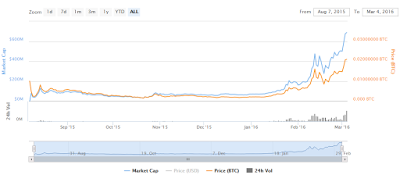
Ethereum is bigger than ever
Microsoft Corporation certified Ethereum
But, what is Ethereum?
Open your free digital wallet here to store your cryptocurrencies in a safe place.

Microsoft to Sponsor the Ethereum DΞVCON1 Conference
“DΞVCON1 is very excited to work with Microsoft and we look forward to having them in London.”Microsoft’s head of US Technology Financial Services, Marley Gray, explained more specifically why Microsoft had taken an interest in this international and decentralized technology event:“Microsoft is excited to sponsor and attend Ethereum’s DevCon1. We find the Ethereum blockchain incredibly powerful and look forward to collaborating within the Ethereum Community. We see a future where the combination of Microsoft Azure and Ethereum can enable new innovative platforms like Blockchain-as-a-Service. This will serve as an inflection point to bring blockchain technology to enterprise clientele”.
Ethereum DevCon1 Is Bringing Interesting Companies and People Together… For a Better FutureAlready, it has been confirmed that not only will Microsoft be in attendance, but so will Nick Szabo. That is actually no surprise given that Szabo coined the term “smart contract” many many years ago and has become increasingly vocal on the internet as his pet idea has started to come to fruition. Smart contracts are a large part of Ethereum’s mainstream appeal, though the concept is still in the process of gaining momentum. The future prospects of robots and computers replacing humans for certain types of jobs has always been on the fringe of human imagination. The more you think about smart contracts, the more you realize that such a futuristic world couldn’t exist in a stable state without something like smart contracts. As panelists at the Money20/20 conference stated:
“Cryptocurrency is the most natural way for machines to pay machines.”
Bitcoin-inspired blockchain technology, of which Ethereum definitely is, has seen a lot of validation lately. Other Bitcoin-inspired blockchain technology like BitShares is also gaining traction, though not in the form of Microsoft sponsorships. Besides the fundraising and actual release of Ethereum’s Frontier alpha and a shaky first few days, the formation of a conference is a milestone that most “altchains” never achieve – not that there was any doubt that Ethereum would make it this far, anyways. After all, even Imogen Heap has even started using Ethereum, why wouldn’t Microsoft be next?
Open your free digital wallet here to store your cryptocurrencies in a safe place.
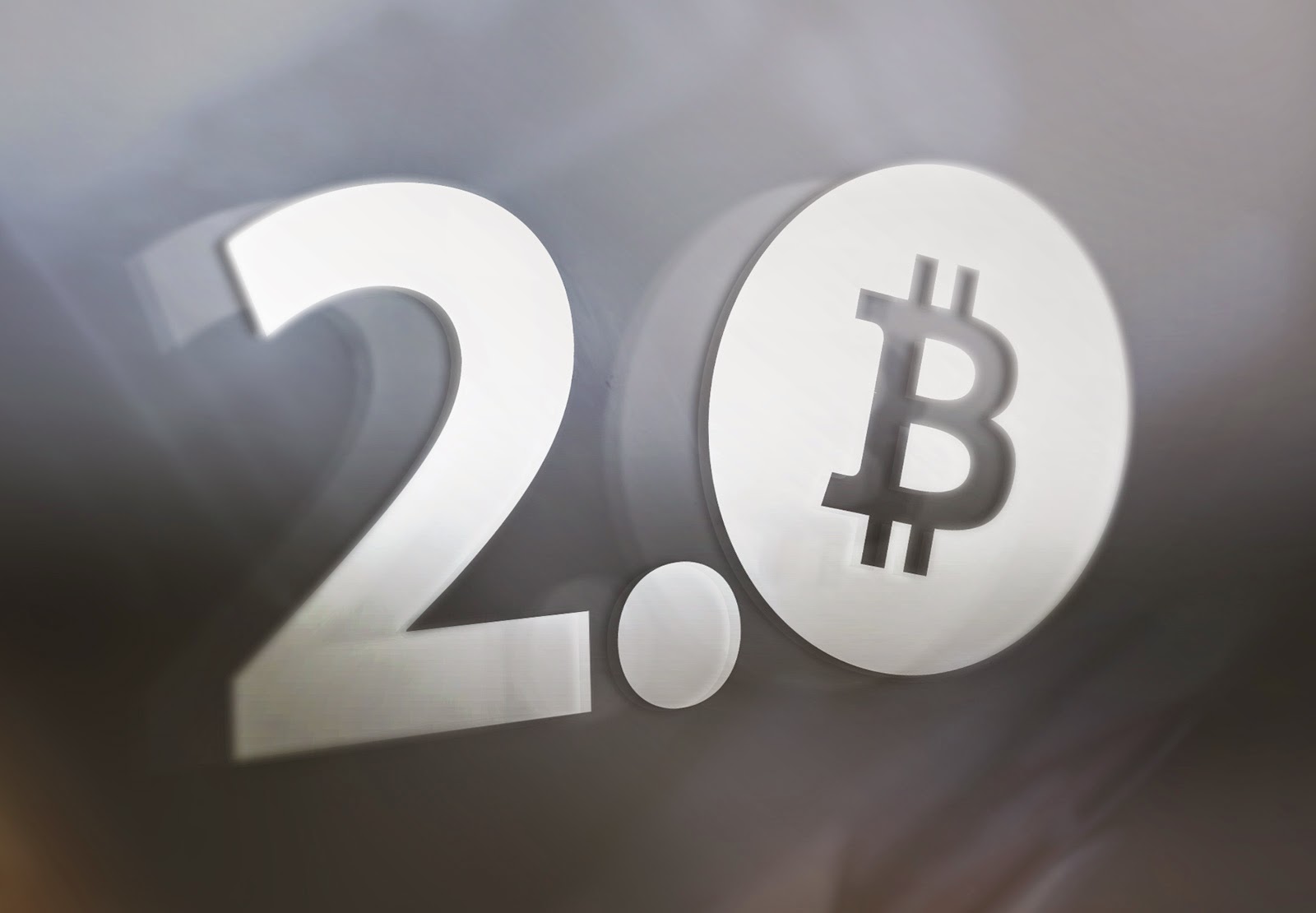
Bitcoin’s revolution moves beyond currency
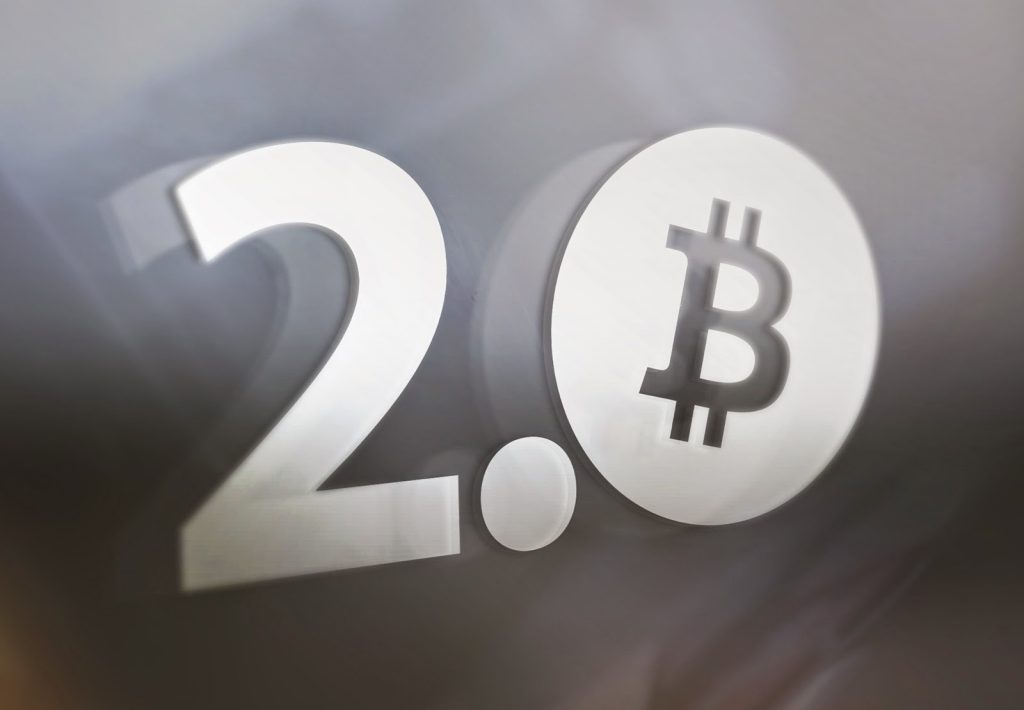 (CoinDesk) Just when people were getting used to the idea that bitcoin might not be a boom-and-bust fad destined for failure, entirely new applications of the technology have joined digital currency on stage.
(CoinDesk) Just when people were getting used to the idea that bitcoin might not be a boom-and-bust fad destined for failure, entirely new applications of the technology have joined digital currency on stage.“Bitcoin can be used to pay for things like a cup of coffee, but that’s not bitcoin’s ‘killer app’. To the average customer it’s just as easy to pay with their credit card. A killer app would need to offer massive advantages in another area.”
“We ought to be paying very close attention to crypto 2.0 because bitcoin has redefined how we launch web services.”
Rise of the decentralized exchange
Decentralized applications will hide the block chain
“Essentially you can take the technology from bitcoin, which is a $5bn–$6bn industry, and apply it to an existing area like cloud storage, which is a $150bn dollar industry.”
Sidechains, treechains and a question of blockchains
“Bitcoin already provides a global currency and distributed ledger – there is no need to reinvent those wheels. Combining real-world information with bitcoin is where things start to get really interesting.”
Open your free digital wallet here to store your cryptocurrencies in a safe place.
Deloitte: media ‘distracting’ from Bitcoin’s disruptive potential
(CoinDesk) The report, titled ‘Bitcoin: Fact. Fiction. Future.’ and authored by Tiffany Wan and Max Hoblitzell, points out that the media tends to focus on bitcoin’s volatility, government crackdowns and exchange meltdowns instead of “its potential long-term significance as a disruptive new money technology”. In addition, Deloitte UP sees potential for bitcoin in fields that are often overlooked even by proponents of the digital currency:
“Bitcoin is more than just a new way to make purchases. It is a protocol for exchanging value over the Internet without an intermediary. Much has been written about the payment applications of bitcoin, including remittances, micropayments, and donations. However, bitcoin could soon disrupt other systems that rely on intermediaries, including transfer of property, execution of contracts, and identity management.”
Bitcoin evolution and new use cases
system, and why it has to deal with less overhead than the traditional payments system.
Speculation and regulation
caveats. Speculators rank high on the list, adding to the volatility and creating the impression of a get-rich-quick scheme. Thus, they introduce more reluctance on the part of everyday investors. The regulatory environment still leaves much to be desired. Like speculation, regulatory moves have a big impact on the price, creating even more volatility.
More than money
“Today, if someone buys a donut with a credit card, the merchant pays an interchange fee to the credit card issuer. This interchange fee is usually a small flat amount (10-20 cents) plus a percentage of 1-3 percent. For a low-margin good like a donut, a 10- to 20-cent flat fee can approach 100 percent of the cost of goods. This interchange fee is often passed on to the customer. Using bitcoin, the transaction fee could be lowered to as little as 1 percent. This could ultimately evolve into a new payment system for credit card companies and banks.”
New use cases
various contracts. Using the bitcoin protocol to manage identities would practically eliminate the possibility of forging identification documents and it would help put confidence artists out of work. A network operated by the government, a contractor or any other entity could verify anyone’s identity simply by scanning a bitcoin key.
About the publisher
Open your free digital wallet here to store your cryptocurrencies in a safe place.
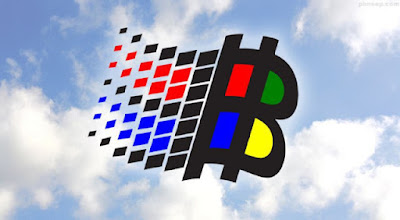

 Tadge Dryja @tdryja
Tadge Dryja @tdryja Nick Szabo @NickSzabo4
Nick Szabo @NickSzabo4 Rob Jansen @robgjansen
Rob Jansen @robgjansen Ittay Eyal @ittayeyal
Ittay Eyal @ittayeyal Ryan Fugger @rfugger
Ryan Fugger @rfugger Emin Gün Sirer @el33th4xor
Emin Gün Sirer @el33th4xor Martijn Meijering @mmeijeri
Martijn Meijering @mmeijeri Matt Corallo @TheBlueMatt
Matt Corallo @TheBlueMatt Bastian Brand @ICryptoInvestor
Bastian Brand @ICryptoInvestor Gavin Andresen @gavinandresen
Gavin Andresen @gavinandresen ThePiachu @ThePiachu
ThePiachu @ThePiachu Fabio Castaldo @_fabiux_
Fabio Castaldo @_fabiux_ Andrew Barisser @abarisser
Andrew Barisser @abarisser Alex Morcos @morcosa
Alex Morcos @morcosa Daniel Krawisz @DanielKrawisz
Daniel Krawisz @DanielKrawisz Tim DraperVerified account @TimDraper
Tim DraperVerified account @TimDraper Dan McGinn @dan_mcginn
Dan McGinn @dan_mcginn Francesco Simonetti @aboutaredhead
Francesco Simonetti @aboutaredhead Jeremy Clark @PulpSpy
Jeremy Clark @PulpSpy halfin @halfin
halfin @halfin Meyer Malka @mickymalka
Meyer Malka @mickymalka Austin Hill @austinhill
Austin Hill @austinhill Joseph Poon @jcp
Joseph Poon @jcp